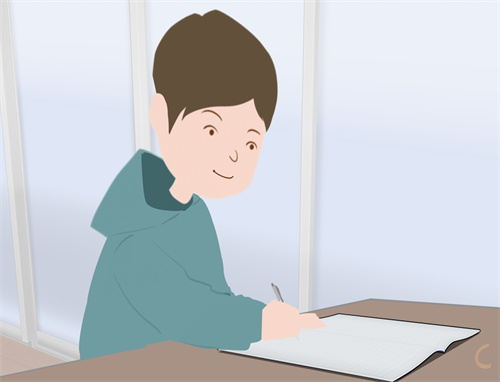因为你再怎么抱怨,那也是枉然,不如勤奋起来,因为勤能补拙,历史上的曾国潘的记忆好,但最后他却成了一个伟大的人?这靠的是什么?不就是勤奋吗?下面给大家分享一些关于高中英语必修5知识点,希望对大家有所帮助。

高中英语必修5知识点
Unit 1:
1. put forward: 提出(计划、建议等);将…提前;把钟表拨快
e.g. He put forward a good plan for this project. 他为这项工程提出了一个好的方案。
The match has been put forward to 1:30. 比赛已经提前到一点半举行。
Put the clock forward by ten minutes. 把钟表拨快十分钟。
【词语联想】
? put away: 收起来;贮存,储蓄
? put down: 放下;写下,记下
? put off: 推迟;延期
? put on: 穿上;增加;上演(戏剧)e.g. put on weight: 增加了体重 put on a new play: 上演新戏剧
? put up: 张贴;撑开(帐篷)e.g. put up a poster put up a tent: 搭起帐篷
2. conclude: v. 作结论,断定(conclusion: n. 结论)
e.g. The jury concluded that he was guilty. 陪审团认定他有罪。
【习惯用语】★ draw a conclusion 作出结论
3. defeat vt.打败, 击败, 战胜; 使(希望, 计划等)失败, 挫败; 阻挠, 使无效
e.g. He finally conceded defeat. 他最终承认了失败。
◆ 区别: defeat, conquer, overcome
? defeat 指“赢得胜利”, 尤其指“军事上的胜利”,e.g. defeat the enemy 打败敌人。
? conquer指“征服”、”战胜”,特别指“获得对人、物或感情的控制”,e.g. conquer nature
? overcome指“战胜”、“压倒”、“克服”尤指“感情”而言, e.g. overcome difficulties
4. attend: v.
1) to be present at; go to (meeting, conference, lecture...) 出席;参加
e.g. He decided to attend the meeting himself. 他决定亲自赴会。
2) to look after, care for, serve 照顾;看护。
e.g. Which doctor is attending to (on) you? 哪位医生护理你?
3)to go with 伴随
e.g. The work was attended with much difficulty. 这项工作带来许多困难。
5. expose...to...
e.g. Don't expose your skin to the sun for too long.
They had to be exposed to the enemy's gunfire.
6. blame sb. for sth. 因为某事责备某人
e.g. He blamed the boy for his mistake.
★ be to blame: 应受责备,应负责任
Who is to blame for the mistake?这个错误应归咎于谁?
7. in addition: 除此之外,另外, 意思相当于 besides, what's more
e.g. I paid 100 Yuan in addition.
In addition to English, he has to study a second language.
◆ 区别: in addition to, except, besides,beside
? in addition to:除…之外,还有…,表示递进关系。
e.g. The company provided the workers with free lunch in addition to paid holidays. 这家公司为员工们提供带薪假期,还有免费午餐。
? except: 除…之外,表示在整体中排除,
e.g. Everyone except me got an invitation. 除了我以外, 所有人都收到了请柬.
? besides 表示“除了……以外,还有……”,与in addition to 同义,
e.g. Besides Mr Wang, we also went to see the film.王先生也去了。
We all agreed besides him.我们都同意, 他也同意。
? beside : 在…旁边。表示方位。
e.g. Lily sits beside me in class. 莉莉在班上做我旁边。
同义句转换
1)He speaks French as well as English.
e.g. He speaks French in addition to/besides English.
2) Apart from the salary, it’s not a bad job.
e.g. In addition to/Except the salary, it’s not a bad job.
8. announce: 公布;宣告
e.g. He announced his decision. 他宣布了他的决定。
9. absorb v.
1) 吸收 A sponge absorbs water. 海绵吸水。
2)专心于
★ be absorbed in sth: 专心的,全神贯注的
The little girl was absorbed in reading a tale. 这个小姑娘正在全神贯注的阅读一篇故事。
10. challenge n.挑战; 挑战书; 邀请比赛; 要求决斗
vt. 向...挑战, 要求, 怀疑 ; vi. 挑战, 对(证据等)表示异议
e.g. meet the serious challenge 面对严峻挑战
高中英语必修5知识点归纳
Unit 2:
1. consist of = be made up of 由……组成 (没有进行时)
e.g. The UK consists ofGreat BritainandNorthern Ireland.
=Great Britain and Northern Ireland make up the UK.
2. 区别:
? separate ... from (把联合在一起或靠近的人或物分离出来)
? divide...into 把…分开 (把整体分为若干部分)
e.g. The teacher divided the class into two groups.
The Taiwan Strait separatesTaiwanfrom Fujian.
3. debate about sth.
e.g. They debate about the proposal for three days.
debate /argue/ quarrel
4. clarify: vt./vi. (cause sth. to )become clear or easier to understand 澄清;阐明;清楚;明了
e.g. I hope what I say will clarify the situation.
Can you clarify the question?
5. be linked to = be connected to /be joined to 连接
【习惯用语】★ link A to B 将A和B连接起来
6. refer to
1)提及,指的是……
e.g. When he said “some students”, do you think he was referring to us?
2) 参考;查阅;询问
e.g. If you don't understand a word you may refer to your dictionaries.
Please refer to the last page of the book for answers.
3) 关系到;关乎
e.g. What I have to say refers to all of you.
This rule refers to everyone.
reference: n. 参考 e.g. reference books 参考书
7. to one's surprise (prep)
“to one's + 名词” 表 “令某人……”
常见的名词有 “delight, disappointment, enjoyment, astonishment 等
e.g. I discovered, to my horror, that the goods were entirely unfit for sale.
To John's great relief they reached the house at last.
8. ... found themselves united peacefully
“find +宾语+宾补( adj; adv; v-ing; pp; 介词短语;不定式)”
e.g. A cook will be immediately fired if he is found smoking in the kitchen.
You'll find him easy to get along with.
They found themselves trapped by the bush fire.
When I woke up, I found myself in hospital.
I called on him yesterday, but I found him out.
9. get sth done =have sth done 使某事被做…….
e.g. I'll just get these dishes washed and then I'll come.
get + n. + to do
get + n. + doing
You'll get her to agree.
I'll get the car going.
get done: 用于意想不到、突然或偶然发生,意为“被…….”
e.g. Be careful when you cross this very busy street.
10. break away (from sb / sth) 脱离;破除…
e.g. It is not easy for him to break away from bad habits.
The man broke away from his guards.
break down (会谈)破裂,失败;(汽车等)出故障;(人的健康状况)变得恶劣;(情感)失控
e.g. His car broke down on the way to work this morning.
His health broke down under the pressure of work.
He broke down and wept when he heard the news.
Talks between the two countries have completely broken down.
? break in 闯入;打岔
? break off 中断,折断
? break into 闯入
? break out 爆发;发生
? break up 驱散;分散,拆散
11. as well as 不仅…而且;既…又…
e.g. He is a teacher as well as a writer.
The children as well as their father were seen playing football in the street.
12. convenience: n.方便;便利(convenient: adj. )
e.g. We bought this house for its convenience.
13. attraction: (attract: v.)
1). 吸引;引力(不可数 n.) e.g. attraction of gravitation 重力
2). 吸引人的东西;喜闻乐见的东西;精彩节目(可数 n.)
He can't resist the attraction of the sea on a hot day.
A big city offers many and varied attractions.
What are the principle attractions this evening?
14. influence
1) v. 对…产生影响 e.g. What influence you to choose a career in teaching?
2)可数n. 产生影响的人或事 e.g. He is one of the good influences in the school.
3) (不可数n.) 影响 e.g. A teacher has great influence over his pupils.
高中英语必修5知识点梳理
Unit 3:
1. impression n. 印记;印象;感想;后接 of sb./ of sth./ on sb./ that 从句;
e.g. My first impression of him was favourable.
I got the impression that they were unhappy about the situation.
知识拓展:impress v.给……留下深刻的印象;使铭记;使感动;常用结构有:impress sth. on/upon sb./impress sb. with sth.给……留下深刻的印象;使铭记;
e.g It impressed me that she remembered my name.令我佩服的是她记得我的名字。
2. remind v.提醒;使想起;
常用结构有: remind sb. to do sth.提醒某人做某事;
remind sb.+(that)/wh-从句 提醒某人……;使某人想起……;
remind sb. about/of sth. 使某人想起或意识到……;提醒某人某事
e.g. I'm sorry, but I've forgotten your name, can you remind me?
You remind me of your father when you say that.
知识拓展:reminder n.提醒物;引起回忆的事物
3. constantly adv.始终;一直;重复不断地
e.g. Fashion is constantly changing.时尚总是日新月异。
知识拓展:constant adj.连续发生的;不断的;重复的;
4. previous adj.先前的;以往的;(时间上)稍前的
e.g. No previous experience is necessary for this job.
I couldn't believe it when I heard the news. I had only seen him the previous day.
知识拓展:previously adv. 先前的;早先
e.g. The building had previously been used as a hotel.
5. bend v.(bent bent)弯曲;使弯曲;弯腰;弯身;
e.g. It's hard to bend an iron bar. 把铁棒弄弯很不容易。
She bent her head and kissed her daughter. 她低下头吻了她的女儿。
常用搭配有: bend one's mind/efforts to sth. 致力于某事
bend sb.to sth. 迫使;说服
bend the truth 歪曲事实
6. press v. 压;按;推;挤;坚持;敦促 n. 报章杂志,新闻工作者,新闻界
e.g. She pressed a handkerchief to his nose. 她用手绢捂住鼻子。
She pressed down hard on the gas pedal. 她用力踩下油门踏板。
He is still pressing her claim for compensation. 他仍坚持索赔。
The press was/were not allowed to attend the trial. 庭审谢绝新闻采访。
7. switch n. & v. 用作名词表示“开关;转换”。用作动词表示“转换”。
e.g. She made the switch from full-time to part-time work when her first child was born.
Press these two keys to switch between documents on screen.
I can't work next week, will you switch with me?
8. lack n. & v. 用作名词,表示:“缺乏;短缺”;用作动词,表示:“缺乏;短缺;没有;不足”。
e.g. a lack of food /money/skills 缺乏食物/金钱/技能
The trip was cancelled through lack of interest. 因为缺乏兴趣这次旅行被取消了。
He lacks confidence. 他缺乏信心。
知识拓展:lacking adj. 缺乏;没有;匮乏;不足
9. surroundings n.[pl.] 环境;surround v. 围绕;环绕 surrounding adj. 周围的;附近的
e.g. Everyone likes to work in pleasant surroundings.
10. catch/gain/get sight of 发现,看出
? lose sight of 看不见,忘记
? lose one's sight 失明
? at first sight 一见就;乍看起来 At first sight, the problem seems easy.
?at (the) sight of 一看见就…… At the sight of the teacher, the boy ran away.
?be in sight 看得见,在眼前 The island is still in sight.
?out of sight 看不见 Out of sight, out of mind.
11. take up
to fill or use an amount of space or time 占用(时间);占据(空间)
to learn to or start to do sth 开始做(某项工作);开始从事
to accept sth. that is offered or available 接受(建议或能得到的东西)
e.g. The table takes up too much room. 这张桌子太占地儿。
They have taken up golf. 他们学起打高尔夫球来了。
She took up his offer of a drink. 他请她喝一杯,她接受了。
He takes up his duties next week. 他下周就要开始履行职责。
12. sweep up 打扫;清扫;横扫;涌向;快速地抱起
e.g. He swept up the baby up into his arms. 他一把将孩子抱进怀里
高中英语必修5知识点总结相关文章:
★ 人教版高中英语必修一语法知识点总结
★ 高中英语必修5unite2知识点习题及答案
★ 高二英语必修二Unit5必背知识
★ 高中英语知识归纳笔记
★ 高一英语必修一知识点归纳总结
★ 高一英语必修一重要知识点总结笔记
★ 高中英语知识点总结与归纳
★ 高中英语语法知识点整理总结
★ 高中数学学霸提分秘籍:必修五知识点总结
★ 高一英语必修一知识点汇总笔记






